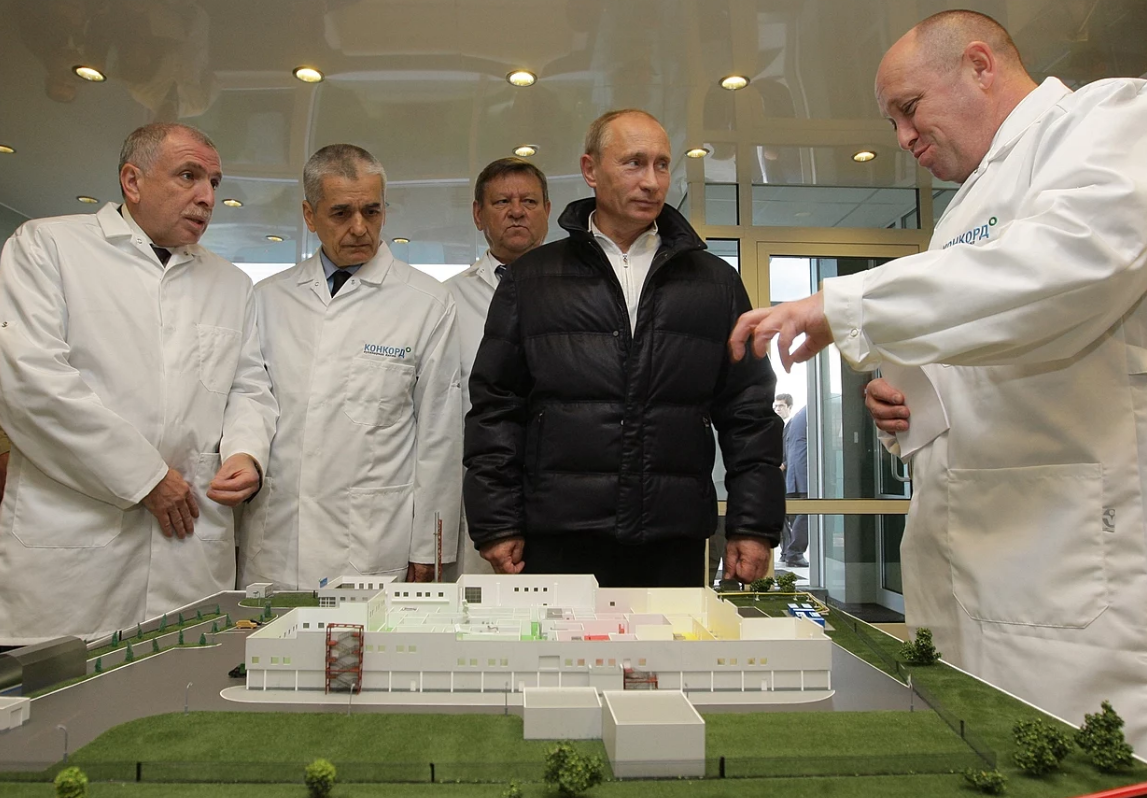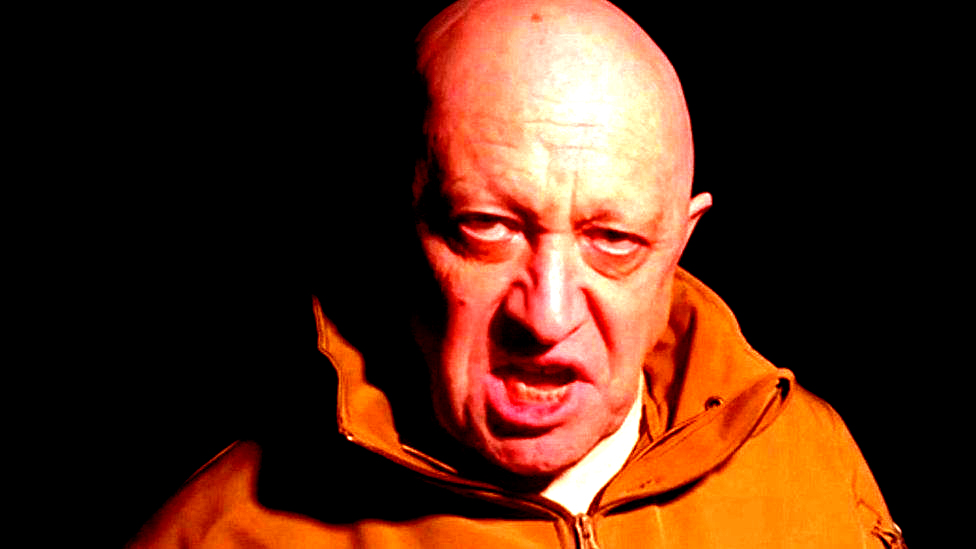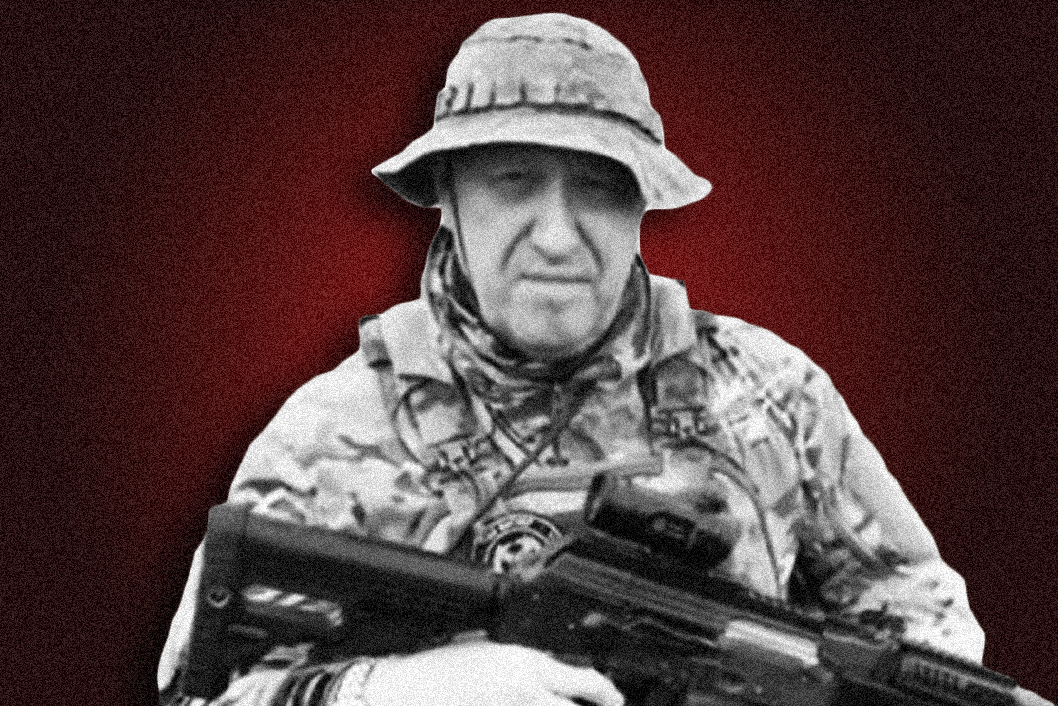When the news of Yevgeny Prigozhin’s demise hit the headlines yesterday, the usual pundits appeared on our television screens with the alacrity of a flock of vultures, anxious to pick over the bones of a dead animal in the African savannah.
They asked the most profound and interesting questions: was Prigozhin on the plane or was he not? Was he alive or was he dead? Would the Wagner organisation survive, or would it perish? Could this be yet another turning point in the war in Ukraine? Will it spell the imminent downfall of Vladimir Putin? And so on, and so forth.
The questions gushed out like gas from a burst pipeline. But answers came there none. Except one, upon which all the ‘experts’ were unanimous: that it is all very complicated. And that, to quote the celebrated phrase of Winston Churchill, Russia is “a riddle, wrapped in a mystery, inside an enigma.”
It goes without saying that such pearls of wisdom do not take us very far. Moreover, a little thought will soon serve to dispose of all the mysteries, riddles and enigmas. It will show that, far from being extremely complicated, what has occurred is not a riddle, a mystery or an enigma, at all, but something very simple indeed.
Who was Prigozhin?
Yevgeny Viktorovich Prigozhin was a member of the Russian oligarchy. Known internationally as the leader of the mercenary Wagner outfit, he rose from a humble station in life (it is said that he once sold hot dogs in Petersburg) to an elevated position among the ruling Kremlin clique, becoming a close confidant of Vladimir Putin.
Referred to contemptuously by his enemies as “Putin’s chef”, he owned restaurants and catering companies that provided services to the Kremlin itself. But, as Lenin once warned of Stalin: this was a cook who would serve peppery dishes.
Prigozhin was the archetypal social climber: an ambitious crook who developed a special skill for climbing up the slippery pole that led to the dizzying heights of state power in the chaotic period that followed the collapse of the Soviet Union.
He started his ascent at the bottom rung of the ladder, as one well acquainted with the inside of a Soviet prison – not for any heroic resistance to the Stalinist regime, but merely as a petty criminal.
His skill as a social climber was exceeded only by the man who later became his master, friend and confidant: Vladimir Vladimirovich Putin. And although they followed two very different routes to power – one as a petty criminal, the ultimate outsider; the other as a minor officer of the KGB – they were morally and psychologically of the same type: unprincipled opportunists and careerists with outsized egos and ambitions to match.
A Bonapartist regime
Since the fall of the Soviet Union, Russia has experienced a counter-revolution in every sense of the word. This is not just a question of the destruction of the nationalised planned economy. There has been a colossal throwback of culture in every sense of the word.
The bourgeois oligarchy that now rules Russia has enriched itself by plundering the wealth of the Soviet state. But the oligarchs are constantly fighting for a greater share of this wealth. They require a ‘Strong Man’ to keep order and protect their interests. The name of this ‘Strong Man’ is Vladimir Putin.
The drunken clown Boris Yeltsin was persuaded to step down in favour of Vladimir Putin.
Putin’s regime is one of bourgeois Bonapartism. It may attempt to balance between different classes and factions, but in the final analysis, it is based on the organised violence of the state and the organs of state repression. But this base is too narrow to guarantee the stability of the regime. Putin needs to create additional points of support.
He himself has accumulated a vast fortune through all kinds of shady business deals, swindling, theft and corruption. This means that he cannot afford to lose power, for fear of ending up in prison. He must cling to power by every means at his disposal.
A key role in this strategy was played by Prigozhin.
There is an English proverb that says: “birds of a feather flock together.” It was only a matter of time before these two desperados would recognise themselves in the other, and instinctively realise that they could be of great use to each other in the pursuit of power.
The only question in this interesting equation was: who was using whom?

One cannot say that either Putin or his companion in crime possessed any remarkable signs of intellectual power. Such individuals have an ingrained contempt for intellectuals: a deep-seated aversion to broad theoretical generalisations of any sort.
No! They see themselves as men of action. They follow the celebrated motto of Goethe (even though they had probably never heard of him): “In the beginning was the Deed.” And what deeds can be more effective than deeds of violence?
That is what Alexander the Great meant when he cut the Gordian knot with his sword. For violence, in the last analysis, lies behind all power, whether that be the organised power of the state or the petty violence of criminal gangs on the street corner.
That lesson was very well learned by both men, albeit from very different ends of the social spectrum. They established a kind of mutually profitable symbiosis.
Putin allowed Prigozhin to participate freely in the looting of the state. In exchange, he purchased the services of a loyal henchman who could be relied upon to carry out any task – no matter how disagreeable or dirty – that was ordered by the Boss in the Kremlin.
A key step in the advancement of his protégé was the establishment of the Wagner outfit – a private company of mercenaries that had a virtually free hand to operate both inside and outside Russia – notably in Africa, where it was involved in highly profitable mining and other deals, as well as offering military aid to regimes that were seen as friendly to Russia.
This was a highly profitable venture, which made Prigozhin fabulously rich. It also inflated his ego to a level where he saw himself as a potential rival to his master.
This was not a very advisable development from the point of view of his personal health and welfare. But in life in general, and in politics in particular, such things have a logic all of their own.
Dizzy with success, Prigozhin seemed to have lost sight of the fact that he was still entirely dependent on the Russian state – that is, in the last analysis, on Vladimir Putin.
Indeed, according to a 2022 investigation by The Insider and Der Spiegel, Prigozhin’s activities “are tightly integrated with Russia’s Defence Ministry and its intelligence arm, the GRU.”
The June mutiny
The Ukraine war served to inflate Prigozhin’s ego further still. The early blunders committed by the Russian High Command, contrasting with the successes of the Wagner commandos in Bakhmut, had a twofold effect.
Firstly, it increased the prestige of Prigozhin and Wagner, to the fury of the Army Command, which reacted by reducing supplies to Wagner and thus sabotaging its operations in Ukraine. The generals began to put pressure on Putin to dissolve Wagner altogether and integrate it into the regular army.
This was fiercely resisted by Prigozhin, who angrily denounced Generals Sergei Shoigu and Gerasimov for incompetence. The conflict eventually ended in the abortive mutiny led by Prigozhin in June, and the so-called march on Moscow, which ended in collapse.
What did Prigozhin want?
The events that led to the collapse of the mutiny remain unclear. Did Prigozhin imagine he could overthrow Putin and assume power? This hardly seems likely, although the conduct of Prigozhin seemed calculated to provoke an open split with his Boss.
Although he made no direct criticism of Putin, confining his attacks to Shoigu and Gerasimov, Prigozhin could not be unaware that, by so doing, he was issuing a direct challenge to the President himself.
From his personal knowledge of Vladimir Putin, he must have been well aware that this was a man who cannot tolerate even the slightest dissent. The mildest criticism results in the harshest punishment. Participating in a peaceful demonstration can lead to a lengthy prison sentence.
Yet here was a man who led an armed uprising against the government – an uprising that led to a number of deaths of military personnel.
Vladimir Putin made his feelings more than clear. He called it “treachery” and a “stab in the back” against Russia. He promised that the perpetrators would be punished. But the leaders of the mutiny were never arrested, put on trial, nor even accused of any offence.
Prigozhin, it is said, was invited to go to Belarus as the honoured guest of President Lukashenko, taking with him all those Wangerites who remained loyal to him, while the rest had the alternative of either joining the Russian army or returning to their homes.
This was not even a slap on the wrist!
Commenting on the agreed compromise (ending the mutiny in exchange for immunity from prosecution) one Russian newspaper commented:
“This kind of compromise is normally made with political opponents. Never with criminals and terrorists. Does that mean we should view Mr Prigozhin now as a political figure?”
People in Moscow and elsewhere were left wondering what on Earth was happening. Now they need wonder no more.
“Revenge is a dish best served cold”
President Joe Biden says he was “not surprised” at news that Prigozhin may have died in a plane crash in Russia.
“I don’t know for a fact what happened, but I’m not surprised,” Biden said, adding: “There’s not much that happens in Russia that Putin’s not behind. But I don’t know enough to know the answer.”
Behind the diplomatic phraseology, the message comes across loud and clear:
PUTIN KILLED PRIGOZHIN!
Is that the most probable explanation? It is by far the most probable – in fact, it is the only credible one. Putin had every reason to wish to dispose of Prigozhin, and none at all for wanting him to remain in the land of the living.
It is not at all strange that he should order his death. It would be very strange indeed had he not done so. As we have had occasion to observe, Vladimir Vladimirovich is a man with very thin skin. He neither forgives nor forgets.
Even the smallest insult will sooner or later be revenged. And what Prigozhin said and did was not a small thing. In June, he inflicted what amounted to a humiliating insult on Putin. And he has paid the inevitable price for his audacity.
Revenge, as they say, is a dish that is best served cold. It was common practice in the days of the Roman Empire for the Emperor to invite somebody he wanted to dispose of to attend a dinner at the palace, where he would find himself pounced upon, tied up and executed in a variety of picturesque ways for the entertainment of the guests.
It would be entirely in character for Putin to have persuaded his old friend to abandon his mutiny in exchange for the most liberal terms dictated by old friendship and mutual understanding.
It appears that, in spite of the suggested exile in Belarus, Prigozhin was seen on several occasions to be active inside the Russian Federation, even to be present at the recent hosting of heads of African states in the Kremlin. Needless to say, none of this would have been possible without the explicit agreement of Vladimir Putin.
The unfortunate Prigozhin was thus lulled into a false sense of security, naïvely imagining that his old friend would forgive and forget his sins. If that were so, then it was a very serious misjudgment that ultimately led to his death in a mysterious air crash, while travelling from Moscow to Petersburg.
This would not be the first time that Putin has disposed of his enemies by physical extermination. The list is, in fact, quite long and varied. To stage an air crash is a very simple means of achieving this end, and it is entirely likely that this is precisely what occurred. At least on this, we have no reason to disagree with Joe Biden.
 Prigozhin's abortive coup in June could never be forgiven or forgotten by Putin / Image: fair use
Prigozhin's abortive coup in June could never be forgiven or forgotten by Putin / Image: fair use
But the inner logic and meaning of these events is a different matter altogether. It is no surprise that a Bonapartist regime resorts to methods of this kind. A Bonapartist regime is unstable by its very nature. Russian Bonapartism is no exception.
Behind the appearance of solidity, Putin’s regime is inherently unstable. There are numerous contradictions, rifts and conflicts between different sections of the oligarchy, and these conflicts will inevitably grow in the next period.
The rift between Putin and Prigozhin is merely the most obvious example of this. The immediate problem has been resolved by the simple expedient of state assassination. But no amount of repression and violence can serve to eliminate the fundamental weaknesses of the present regime.
The inevitable crowing of the West is, however, entirely misplaced. They predicted that the June mutiny would lead to Civil War in Russia. They were wrong. Putin dealt with that incident without much difficulty – although it was clearly a shock to him and his clique.
Nor did this affair have any real effect on the war in Ukraine, which, despite all the hopes of the West, is going very badly for Ukraine. The mood of war weariness of the population is growing by the hour. The much vaulted ‘counter-offensive’ has suffered a humiliating defeat.
And the splits in the Ukrainian regime will turn out to be even more violent than those we now observe in Russia. The pressure on Zelensky to negotiate on the basis of sacrificing land for peace is becoming intense. The result may well be a collapse of the Kyiv government, a coup or even the assassination of Zelensky.
And what of the tensions and contradictions that exist in the so-called democratic regimes of the West? It is true that Joe Biden does not enjoy the possibility of physically eliminating his nemesis, Donald Trump. A fortunate air crash does not appear as an immediate solution to his problems – at least in the immediate future.
Nevertheless, the indecent haste of the US establishment to rid itself of the danger of a Trump victory in the forthcoming presidential elections by the simple expedient of putting him behind bars is in no way different to the motivation by which the man in the Kremlin seeks to solve his political problems.
It is not at all clear that there will be a Civil War in Russia before there is a Civil War in the United States of America. The economic, social and political contradictions in America are every bit as serious as those in Russia, if not more so.
Let us recall that it was not so long ago that a mob of more than 2,000 rioters assaulted the US Congress, many of whom vandalised and looted parts of the Capitol Building, including the offices of House Speaker Nancy Pelosi and other members of Congress.
Rioters also assaulted Capitol Police officers and reporters, and attempted to locate lawmakers to capture and harm. These events bear eloquent witness to the deep fault lines that divide US society.
In fact, the whole western world is being undermined by a deep crisis of the capitalist system, which can engulf it in revolutionary crises far more quickly than what most people can imagine.

